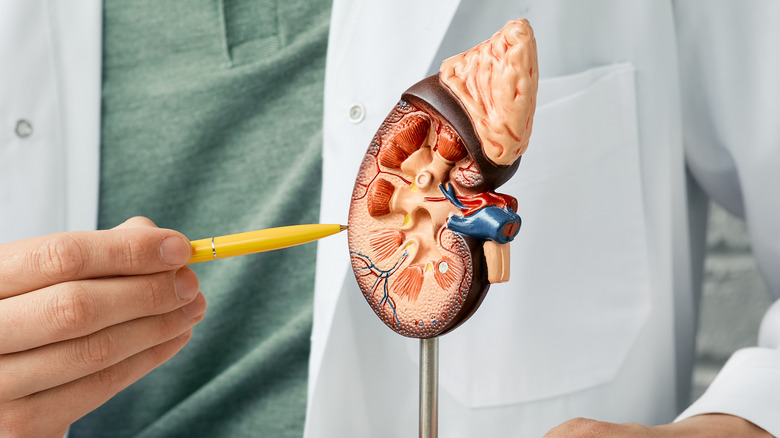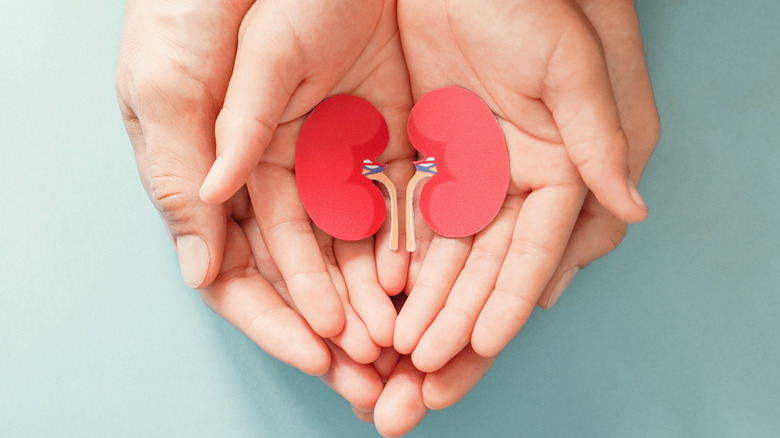More People Die Each Day Waiting For Organ Donations Than You Think
According to The United States Census Bureau, the current world population is hovering at just below eight billion people, with approximately 4.3 births and two deaths occurring every second — that's a lot of life and death happening on a momentary basis, isn't it? Given the staggering number of people on the planet, you'd think there'd be no shortage of eligible organs available for donation and transplant.
Unfortunately, it's really not that simple. There are currently around 106,000 names on the waiting list for an organ transplant in the United States alone, with a new name getting tacked onto that list every nine minutes or so. Despite the fact that skilled doctors have carried out a remarkable number of successful organ transplants over the years (more than 40,000 in 2021 alone, as Organ Donor reports) and there are still plenty of people willing to donate, far too many sick individuals never get the opportunity to undergo their lifesaving surgery and tragically die as a result (via American Transplant Foundation).
How many people die waiting for an organ transplant?
If you've ever met someone who is waiting for an organ transplant, you know full well how complex and unpredictable the process can be. There are currently more people in need of a liver than there are available livers, which means that many of those individuals will die while they wait. On average, people are liable to wait for anywhere between 30 days and five whole years for a healthy liver to arrive (per National Institute of Diabetes and Digestive and Kidney Diseases).
The liver is just one of the many organs that a myriad of people out there are in need of. Because of the astonishing number of individuals who need new organs to survive, it's estimated that up to 17 of them pass away on a daily basis, which ultimately equates to around 6,502 people every year (via American Transplant Foundation).
How to become an organ donor
If you'd like to become an organ donor, it's a relatively easy process. You can visit your state registry or the local motor vehicle department to get the wheels in motion, or you can do so online. You are generally able to select which organs you're willing to give up in the event of your death, though there are a select number of states that specify which ones are needed most (via Health Resources and Services Administration).
Many people opt to donate their organs while they are still alive (it's not unusual for someone to provide a kidney or a liver node). Some are under the impression that you have to be related to someone in order to properly provide them with a compatible organ (living or dead), but this is actually a misconception. Compatibility is based on numerous factors, which means that people aren't pigeonholed into this being their only option. In 2020 alone, 5,700 successful organ transplants were carried out, according to Donate Life America.


